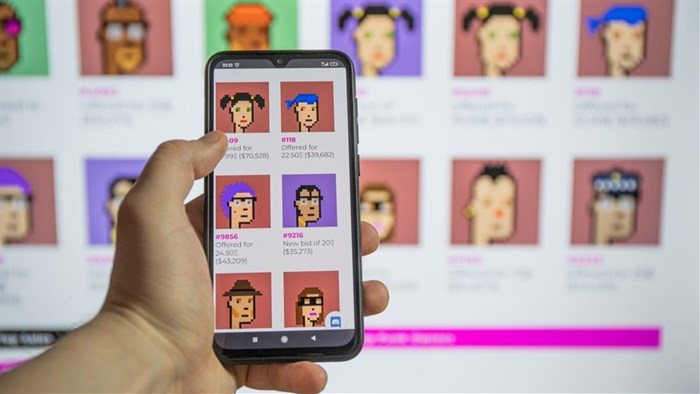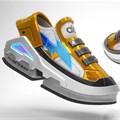I started my trends forecast last year by saying: 'Covid-19 made it clear that despite any organisation's best efforts to predict what's coming, the possibility for major disruption always exists... the only certainty is uncertainty.'

Source: ©Rokas Tenys -
123RFA year later, we don’t have much more certainty, and major disruption remains 100% on the cards. But there’s never been a better time to be a business leader in Africa. We’re living in a time when several technology, consumer and cultural megatrends are colliding head-on, creating an environment that’s ripe for disruption (and a whole lot of innovation).
What’s really positive is that we’re starting to get some clarity on how these mega-trends will affect African businesses. Here are my top five trends for the year. They span technology, culture and business, and reflect a world that’s changing faster than we realise.
Web 3.0 - People and businesses take back control
Web 1.0 saw information pushed at us. With Web 2.0, the internet got social, and businesses and users started creating their own content. But the big move for 2022 and beyond is Web 3.0 – it’s the Internet, but it belongs to everyone.
Here’s why it’s important. Web 3.0 is an incredible opportunity for Africa to build new businesses, social networks and marketplaces in the digital age. Last year, $27bn was raised by Web 3.0-related start-ups compared to the $1.3bn raised by the African startup ecosystem in 2020.
When you think about how the Web 3.0 opportunity is fully disconnected from geographical constraints, you get a sense of the massive opportunity it presents to African businesses and new careers for young Africans.
NFTs go mainstream
There’s a good reason the Collins Dictionary declared ‘NFT’ the 2021 word of the year (and why ‘metaverse’ made the short list). NFTs (non-fungible tokens) are digital assets that are created using the blockchain. According to the DappRadar Industry Report for 2021, NFT trading volume for the year surpassed $23bn- compared with just $100m in 2020.
The rise of NFTs shows that digital assets as a store of value are being taken seriously in financial markets, and formal ownership of these assets can be documented. Apart from opening new markets for African digital creators, artists and brands, the digitalisation of data records will be a massive business.
In 2022, we can expect to see growing numbers of African brands using NFTs to offer new experiences to their customers, build communities and to increase brand awareness and loyalty.
The return of trust
For the past few years, the Edelman Trust Barometer has shown how trust in our societal institutions and leaders is broken. Web2.0 allowed the rampant spread of misinformation and fake news.
This year, I expect to see African business leaders taking clear action to build trust. Forrester believes that in 2022 leading companies will use trust to benefit the planet, empower the organisations and individuals they serve and seize the opportunities presented by new digital models.
How? By being seen to address societal challenges - like poverty, financial inclusion, job security, climate change and vaccinations. Dealing with these issues benefits society at large and trust will be built, or broken, on how organisations declare their intent and take real actions to back it up.
Sustainability becomes a way of life
The COP26 conference in Glasgow late last year showed us that the world’s transition to a low carbon economy will need to accelerate dramatically if we’re going to save our planet. Practically every business in Africa (and the world) will have to turbo-charge their decarbonisation efforts.
But how does this work in the real world? Every company in Africa, from startups to giant conglomerates, must start finding ways to integrate sustainability into their business – from renewable energy sources to biodegradable packaging. In 2022, businesses that take sustainability will start to be preferred by consumers.
Expect to see more inter-Africa trade underpinned by the African Continental Free Trade Area to boost the sustainability of African natural resources and increase contribution to Africa GDP growth.
The rise and rise of the nomadic workforce
We’ve talked a lot about hybrid work in the past couple of years, and how difficult it is for businesses to find a model that works for them. Here’s the bottom line: this isn’t about hybrid work, or WFH anymore.
All the business leaders I talk to are seeing a fundamental shift in employees’ expectations. Workforces now expect ‘flexibility forever’ as part of a new focus on how they live and spend their time.
But the ‘untethered’ worker isn’t Africa’s biggest headache – it’s an opportunity. If the business community can work together with governments and civil society to upskill millions of young people in technology-related fields, the continent could become a major supplier of skills to the rest of the world.
African small businesses can now show up as credible players in the global economy and compete with their international counterparts on a level online playing field. If we get this right, our best minds will no longer need to look outside the borders of our countries for better opportunities. Exporting our innovation while never leaving home is something that’s good for all of us!





















































